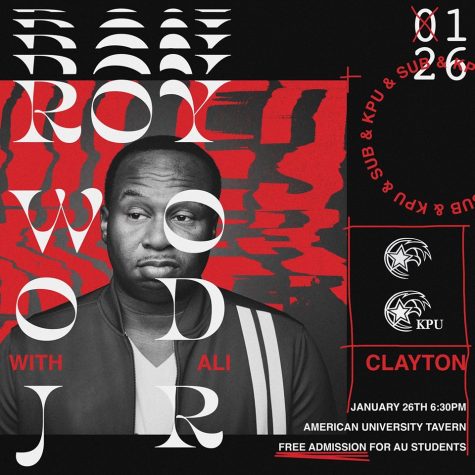AU’s Forgotten President: Notes From a Troubled Career
On Saturday April 7, 1991, Richard Berendzen got a haircut. He stopped by the office for a few hours, then he met his wife for lunch.
“Ed Carr called,” she said. “He wants you to call him back as soon as possible.”
Ed Carr was the new Chairman of American University’s Board of Trustees, and trustees did not normally deal with university presidents directly. President Berendzen thought it was unusual but “[Ed] was new to the job, so I thought maybe he had a different approach.”
Berendzen returned the call. Ed asked him to come to his office in downtown Washington immediately.
Within the hour, Berendzen resigned as president of American University.
Berendzen grew up in a tumultuous household in Dallas, Texas. His domineering mother verbally abused his father and controlled every aspect of her son’s life. But she had problems of her own.
“My mother was mentally ill for most of her life and for all of mine,” writes Berendzen in his 1993 book, Come Here: A Man Overcomes the Tragic Aftermath of Childhood Sexual Abuse. Berendzen, who had no comment for this article, said that as a child, “All I knew was that she was wildly unpredictable. Labels like manic, paranoid, delusional and psychotic came years later. Sometimes she would be furious for no apparent reason; then, in a snap, she could suddenly become incredibly loving, supportive and fun.” His parents’ relationship was equally tumultuous due to his mother’s controlling nature.
Yet where her domination of his father was meant to tear down and destroy, she nutured young Berendzen into exactly who she desired him to be. His mother fueled Berendzen’s intellectual development, giving him all types of fiction and poetry, all of which he devoured.
She wanted to inspire Richard and to render him completely dependent on her—and she wanted that dependence to be more than emotional.
Berendzen’s mother worked an assortment of odd jobs. One of her longer-term jobs was in a darkroom processing film related to medical studies. It was there that she first raped Berendzen on a metal processing table.
Richard’s abuse did not stop there. One afternoon not long after the darkroom, his mother again asked him to ‘Come here’—a phrase which inspired the title of his book.
Dr. Wanda Collins, the director of the American University Counseling Center, says pedophiles project inappropriate thoughts onto the child. “[They] can imagine the child is provocative and may want that kind of attention,” said Collins. “But it’s not true, its only because it’s coming from their own projections—none of which is from the child’s own needs and wants.”
Such was the course of many afternoons throughout Berendzen’s childhood: “It happened every few days, or once a week for a while, or not for a month.” But it happened, off and on over the course of four years.
“To experience pleasure and disgust for the same reason and almost simultaneously created overwhelming confusion and torment,” writes Berendzen.
“For someone who is abusing children, they can rationalize things for themselves but it doesn’t put the child’s best interest at the center of their behavior,” said Collins. “Children need affection but they don’t need sexual attention from adults.”
According to ChildHelp, a leading national non-profit for helping victims of child abuse, 7.6 percent of all child abuse cases are sexual abuse, and over 90 percent knew their perpetrator in some way.
Hard work, success and achievement defined Berendzen. He went to MIT as an undergraduate, then to Harvard where he completed his PhD in physics and education.
“‘All of a sudden, it clicked: I have an obscene phone caller,’ she told the Washington Post in
a 1991 interview.”
As president of American University from 1980 to 1990, Richard Berendzen accomplished an incredible amount, both for the University and for himself. He raised the average SAT score by 200 points, slashed admission rates and raised huge amounts of money. He did so with “a relentless personal PR campaign,” according to Washington Post reporter Peter Carlson. “He traveled the country, speaking to groups of teachers and students and appearing on any interview program that would have him, expounding on education or outer space or anything else that anybody wanted him to talk about.”
He shamelessly promoted American University and himself, and it produced results. Berendzen worked 100-hour weeks, and attended three or four parties every Saturday night. The effort was a good way to push the thoughts of his abuse away—he just stopped wondering about it, stopped worrying and went to work. He became so absorbed in that bubble of success that he believed he could wish away his past.
“If you work very hard, somehow you don’t remember it anymore. And I learned after a while that if you work 60, 80, 90 hours a week, 100, you don’t remember it,” Berendzen writes.
Collins agrees that it is possible to entirely repress memories throughout the course of a lifetime. “You could think of it as a degree of dissociation that would take place on a continuum,” she explains. “On one end of the continuum there is someone who has a bad weekend but then can go to class and be very present and separate the events—but you still remember what happened. But maybe on the other end of the continuum is someone who had a traumatic experience and completely represses the memories.”
On March 23, 1991, Susan Allen, owner of a home day-care service and the wife of a Fairfax county policeman, picked up the phone. A man named either Bob or John, a “gynecologist,” asked if she had an open family, if she let her kids sleep in her bed and if she let them see her naked.
“All of a sudden, it clicked: I have an obscene phone caller,” she told the Washington Post in a 1991 interview.
Allen told the unknown caller what he wanted to hear and that he should call back tomorrow.
“I answered his questions in the way I knew he wanted them answered,” she said. “So that he would be satisfied, so that he would think he’d found his true love in this world and he would call back. And he did. He fell for it, hook, line and sinker. And he asked, ‘Would we include his child in our sexual goings-on in the house?’ And I said, ‘Well, my husband’s the head of the household, and he makes those decisions, and I’ll have to talk to him. Next time I talk to you, I’ll let you know.’”
Fairfax police installed a tracking device and tape recorder in Allen’s phone before the man called back the next day. Over the next two weeks, the man called about thirty times, discussing sexual topics: incest, molestation and sex slaves. The man claimed to be keeping a four-year-old Filipino girl in a cage in his basement.
The calls were “filthy beyond your most horrible nightmares,” said Allen. “And 99 percent of it centered around children.”
The police traced the calls to American University. Public Safety traced the calls to the president’s office. The next day, the chairman of American University’s board of trustees called Berendzen.
In his original resignation letter, Berendzen cited exhaustion. A few weeks later, the allegations became public, and the police pushed formal charges against him. Berendzen had been forced to resign because of his lewd calls to home-care services like Allen’s. In less than a month, the gleaming reputation of the Harvard-educated university president had vanished.
The calls themselves were not those of a perverted man, but of someone searching for answers, someone trying to explain. The Washington Post interviewed Fairfax county prosecutor Robert Horan who said, “I don’t want to dignify the calls by saying they were sort of cerebral, but they were sort of cerebral,” he says. “They were probing. They were essentially, `We do a lot of togetherness, do you?’”
If Berendzen had addressed his abuse sooner, the calls might not have happened. According to Stop it Now, a sexual abuse mobilization effort, studies show when victims of sexual abuse receive treatment, the likelihood that they themselves will abuse is low.
“If you work very hard somehow you don’t remember it anymore. And I learned after awhile that if you work 60, 80, 90 hours a week, 100, you don’t remember it.”
Berendzen was treated at Johns Hopkins psychiatric hospital in Baltimore. Under the powerful drip of sodium amytal, he finally came to terms with his childhood; for the first time, he admitted what had happened to him as a boy.
“People who grow up in an environment where there is some type of trauma can spend their childhood and adolescence surviving it in whatever way they need to,” said Collins. “It’s often not until they get away from home for the first time—maybe when they’re in their first significant romantic or sexual relationships, or when they have kids who are the age that they were when the abuse occurred—that their own memories of abuse might be triggered. They may also experience depression or anxiety that can motivate them to get into treatment.”
Berendzen’s fall from grace was meteoric. In his book, he writes of weeks, months, whole years of depression, even after Hopkins. Some of his colleagues didn’t return his calls. Nevertheless, his wife, Gail Berendzen, stood by him, and his children also allegedly understood. Even the AU community saw an outpouring of sympathy.
Berendzen had resigned the presidency, retreated to Virginia for a time, and it didn’t seem as though he would teach again. Until he wrote his book, until people knew what had happened to him as a child, he was isolated.
Berendzen eventually returned to American University to teach. After the media waves from the scandal subsided, he quietly continued his work at NASA—where he is currently the director of the DC Space Grant Consortium—and at AU. Though he retired from teaching in 2006, he still holds emeritus professor status.
When he returned, he was even more respected than before. One student who took astronomy with Berendzen remarked on RateMyProfessors.com in 2005, “Berendzen is a must for any person trying to fulfill their science Gen Ed.” Another student remarked, “Most inspirational class I have ever taken.” And yet another wrote: “Fabulous prof. One of a kind!” •
If you believe a child is being abused, please call the Childhelp National Child Abuse Hotline at 1-800-4-A-CHILD. It is staffed 24 hours a day, 7 days a week and offers crisis intervention, information and support. All calls are anonymous.






